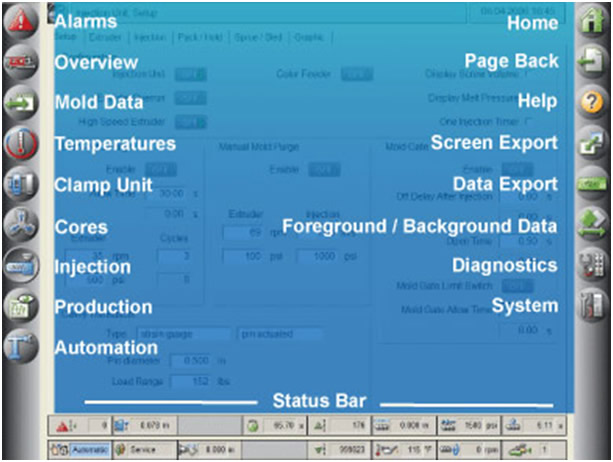What Matters in All-Electric Injection Molding Controls

Simple, intuitive navigation -- as seen in this screen from the Mosaic control system of a Milacron all-electric injection molding machine -- is one of the keys to effective computer control.
Exacting computer controls have always been at the heart of the speed and precision of all-electric injection molding machines. Today, in supporting error-free operation by minimally experienced workers, controls are more important than ever.
Control systems vary from machine to machine, but the most effective systems all share several common attributes:
- Easy Set-Up – Look for a single screen for setting the clamp, ejector, injection and extruder volume, position and pressure in metric and English units. Touch-screen operation and a minimum number of steps before start-up contribute to the ease of use.
- Intuitive Operation – The most effective systems offer logical grouping of machine and manual operation buttons, to help the user quickly find the information he or she requires.
- Advanced Diagnostics and Real-Time Reporting – Remote monitoring of advanced sensors, auto adjustments, enhanced plotting graphics, statistical process control and easy-to-understand troubleshooting diagnostics are among the most valuable tools of an effective control system.
- Safety Features – Safety is paramount. Constant monitoring by a control system that produces active alarm texts, fault messages, alarm logs, change and operation logs can go a long way toward ensuring safe operation of your machine around the clock.
- Programmable Logic – With flexible parameters, signal interfaces, input/output and cycle states, melt pressure transfer and more, PLC provides the flexibility to create sequences in your machine without special programming the OEM.



